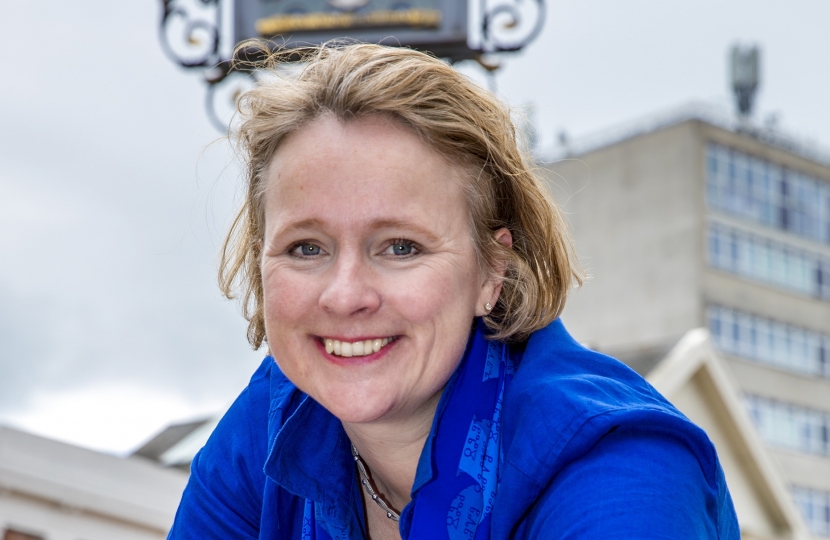
If we want to keep our spot at the forefront of innovation we need to send a clear message that we are open to exchanges of talent, skills and education, says Vicky Ford
Science is an area where Britain punches way above our weight. The UK represents just 0.9% of the global population but we have 3.2% of the world’s R&D expenditure and over 4% of researchers. British scientific research is known for its high quality; nearly 16% of the world’s most highly-cited articles are British and, among our comparator countries, the UK has overtaken the US to rank first by field-weighted citation impact.
World-leading researchers in the UK cover a vast array of specialities from crop science to health, energy, transport and communications and more. They are based in universities, institutions and in industry. The government’s commitment to invest £4.7bn in research and development as part of its industrial strategy is widely welcomed. This is a bigger increase in investment than in any parliament over the past 40 years. Research collaborations between industry and academia are key to driving industrial advances and innovation, and it is very encouraging to see the increased focus on commercialisation and development. It is also important that the strong commitment to fundamental science is maintained.
Leading international scientific collaboration is also important. In my previous role, I was involved in the negotiations of the £70bn Horizon 2020 fund. To date, more UK-based scientists, researchers and companies have participated in this programme than from any other country. EU research income represented 12% of the collective research grant income to Russell group universities in 2015-16, up from 7% in 2007-08. For many lesser-known universities, the percentages are much larger. The benefits go beyond the financial contribution; researchers often explain that working in collaboration can inspire new thinking and improve results.
The Science and Technology Select Committee will have interesting decisions on what work it chooses to undertake on new technology. Having a vibrant digital economy is vital to Britain’s long-term success and, economically, the tech sector is already growing at 7% per annum. However, the acceleration of the digital sector is driving massive change in other areas. The committee is already doing a study on the role of algorithms in decision-making. What might it look at next? The rapid evolution of the ‘internet of things’ raises new developments around cyber security and further advances in Quantum computing could lead to yet another technological revolution, potentially affecting cryptography. These are areas where it could be beneficial to develop strong links with legislators in other like-minded jurisdictions.
Our cutting-edge science and technology sectors rely on being able to share ideas easily. For the UK to remain at the forefront of innovation it needs to continue to send clear messages that Britain welcomes expertise from across the world and keep an open approach to exchanges of talent, skills and education. It is helpful that the prime minister outlined the government’s commitment to continued cooperation on science and education in the recent Florence speech. New immigration policies will need to be sensitive in this area.
Britain has a long history of supporting scientists facing challenges overseas. The organisation CARA helps academics who are forced to flee their home country and find refuge in our universities and research institutions. Most recently its focus has been on the Middle East, particularly Iraq and now Syria, and troubled regions of Africa, but the organisation’s roots go back to the 1930s when it helped bring to the UK over 2,000 leading academics expelled by Nazis from Germany’s universities. Of those, 16 won Nobel prizes, 18 were knighted and over 100 became fellows of the Royal Society or the British Academy. Their contribution to British scientific, intellectual and cultural life was enormous.
It is many years since I studied science at school, but I still have the book I was awarded for gaining a silver medal in the physics Olympiad. The inscription is written to “Mr” Victoria and congratulates the winner on “his” achievement. Things have improved but there is still more to be done to make sure all talent is nurtured and encouraged.
I am delighted to have been elected on to the Select Committee and am looking forward to good collaboration with committee members and with representatives from our outstanding science and technology sectors.
Article published in The House magazine October 2017. Link to original article on Politics Home website here: